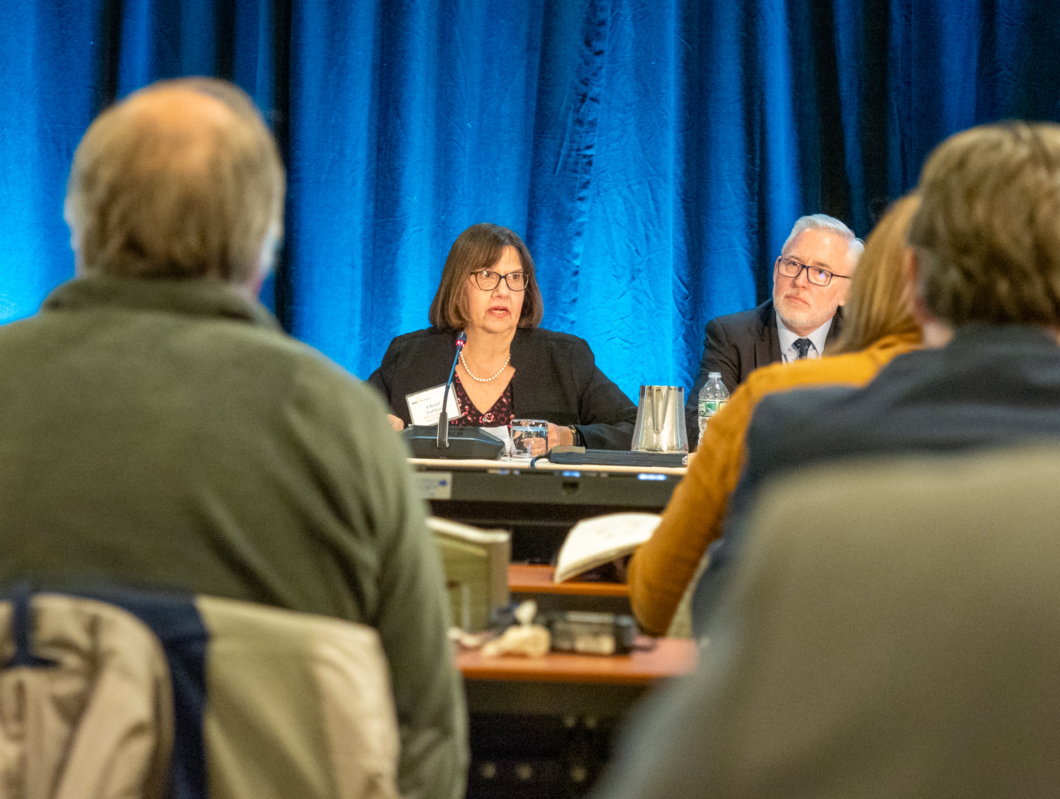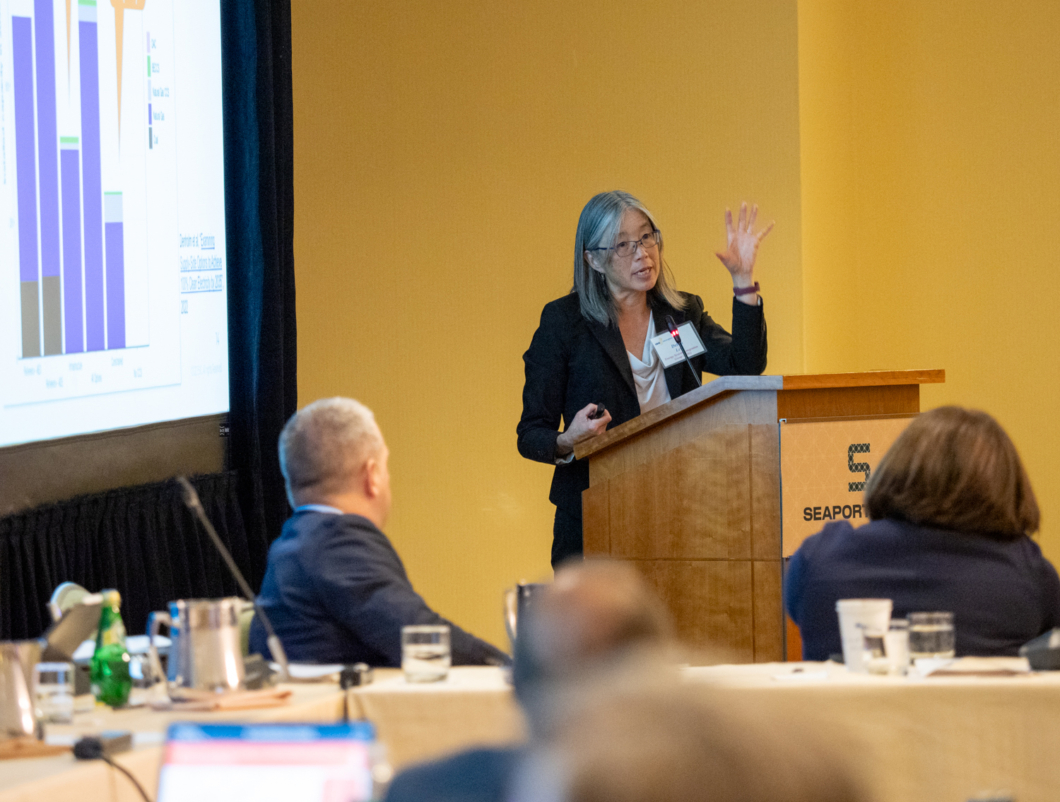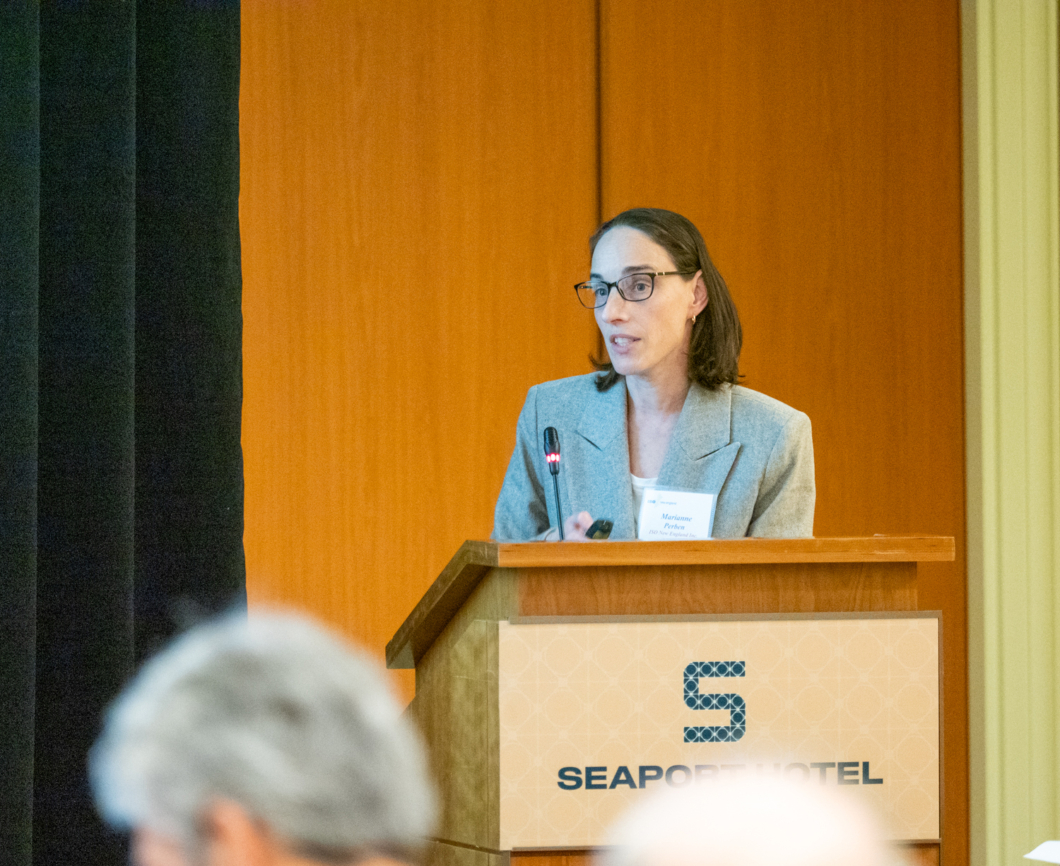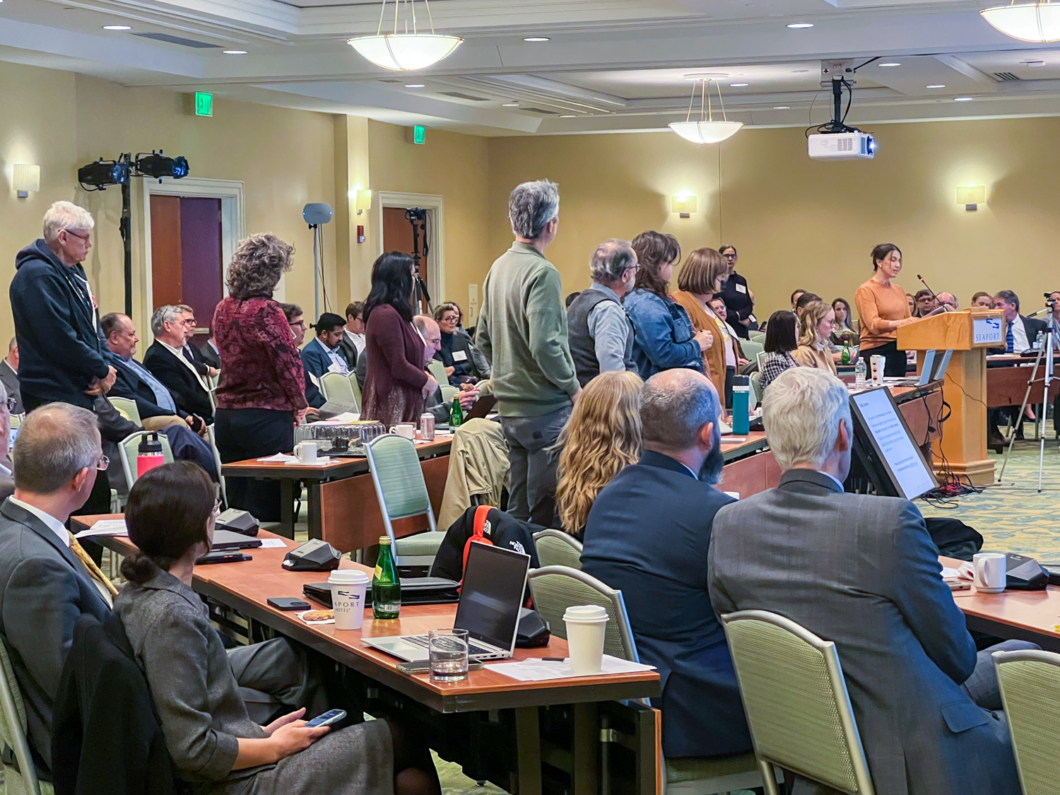Annual open Board meeting features planning report, public comment

The clean energy transition was front and center at a recent meeting where the ISO New England Board of Directors heard from system planners, an industry expert, and members of the public.
The meeting, held November 1 in Boston, was the second annual open meeting of the Board, where the public was invited to observe Board discussions and offer input as part of recent governance enhancements. The event also included the 2023 Regional System Plan Public Meeting. Video is available below.
Board Chair Cheryl LaFleur opened the meeting by outlining the ISO’s three critical roles: grid operation, market administration, and system planning.
“All of that work is being carried out in the context of the big transition that this region is going through, and indeed the whole nation, in response to climate change,” LaFleur said. “The ISO is leaning into that and most of our work plan is shaped by helping the states and the region meet the goals they have for a decarbonized grid that’s still reliable and as cost effective as it can be. And I know everyone on the Board is very committed to that work. I’d say that’s why a lot of us are here.”
ISO-NE President and CEO Gordon van Welie delivered a report about ongoing transmission planning projects, and took questions from Board members.

Dr. Debra Lew, associate director of the Energy Systems Integration Group (ESIG), discussed challenges around fully decarbonizing the energy sector, including the potential for overbuilding intermittent resources and the need for the development of innovative clean energy resources that can reliably meet peak demand. Her presentation slides are available online.
ISO staff presented the draft 2023 Regional System Plan (RSP23), a comprehensive assessment of the types of resources and transmission facilities the region will need over the next 10 years, while accounting for market efficiencies and economic and environmental considerations.
As the report details, state, regional, and federal policies are driving the decarbonization of the economy, likely resulting in an influx of clean energy resources and dramatic increases in electricity demand for heating and transportation.

“The key takeaway—and this might be a bit of a spoiler alert—is the power grid of the future’s going to be much different than the power grid of the past,” Caren Anders, chair of the Board’s System Planning and Reliability Committee (SPARC), said while introducing the presentation on the report. “Immense resource and transmission build-outs, along with modifications to grid planning processes—all of these are required to meet the region’s evolving needs.”
The Board later voted to finalize RSP23. The draft report, a four-page overview, and meeting presentation slides are available online.

Several people spoke during the public comment portion of the meeting and provided their viewpoints on the benefits of public engagement and the ISO’s role in the clean energy transition.
“Most of us are parents and/or grandparents, and care about the future of the planet,” LaFleur said of her Board colleagues at the meeting’s conclusion. “We are trying to help [the ISO] lead where we need to go. But meetings like this certainly reinforce the urgency of that, and that’s one of the benefits of having them.”
The public may continue to submit comments to the ISO-NE Board of Directors by emailing legal@iso-ne.com. The Board plans to host another public meeting next year focusing on the wholesale electricity markets.
2023 November RSP & Open Board Meeting from ISO New England on Vimeo.
- Categories
- Events
- Tags
- clean energy, future grid, ISO leadership, transmission planning
